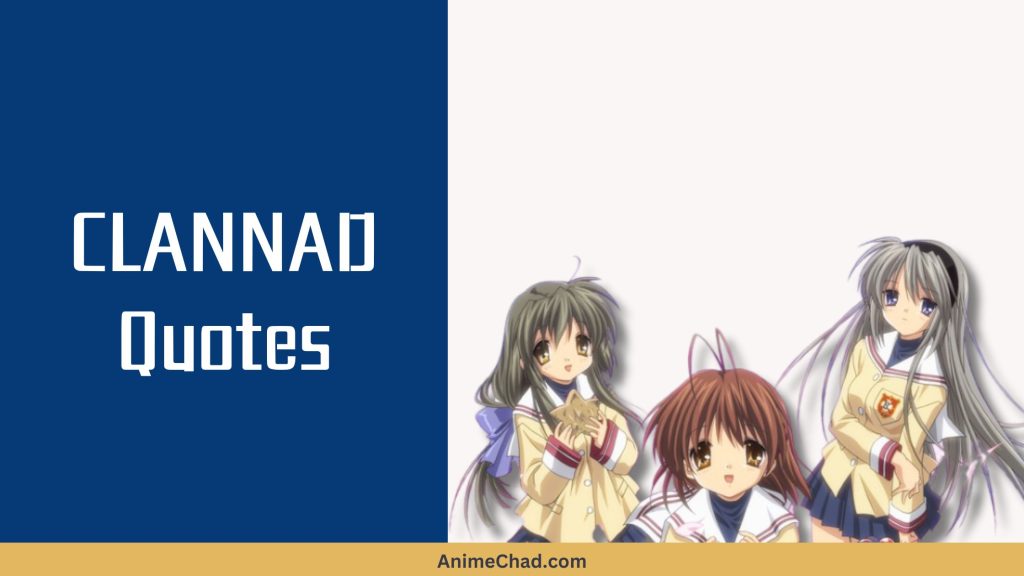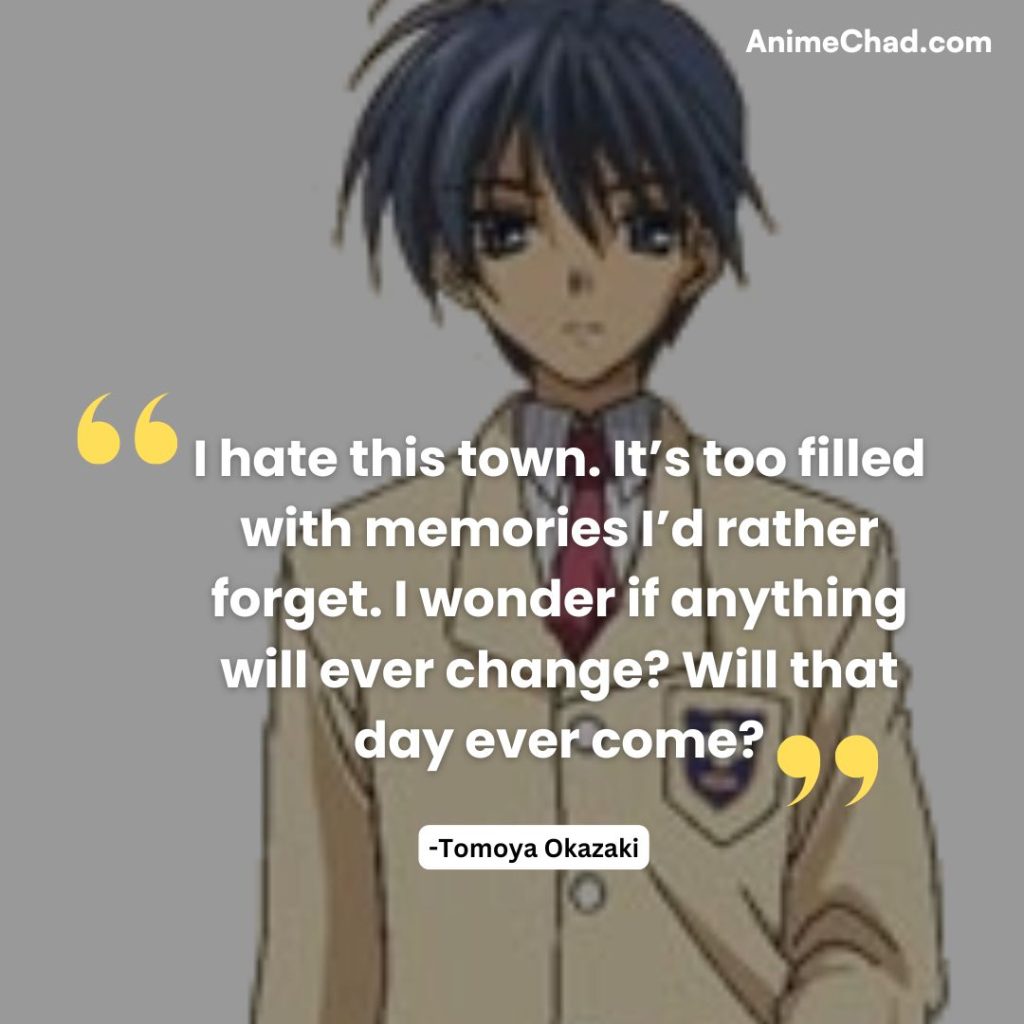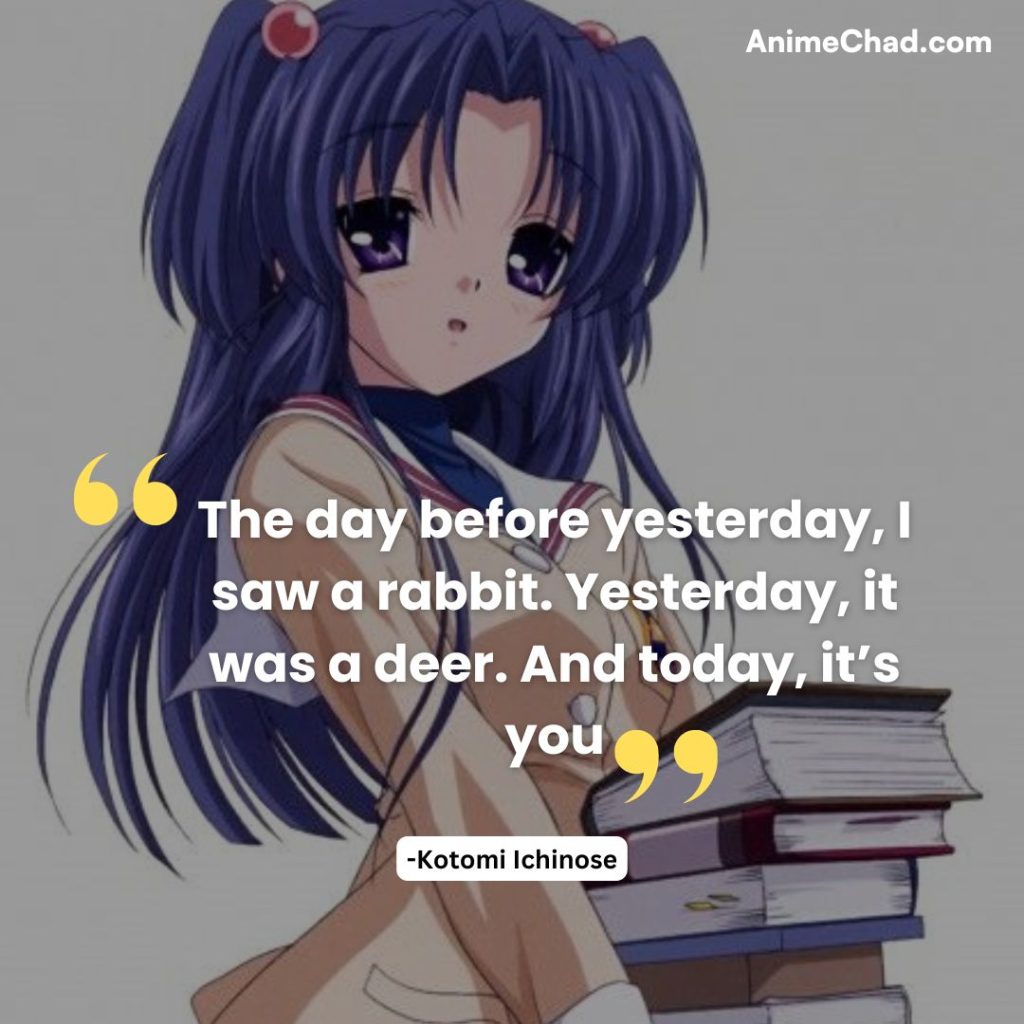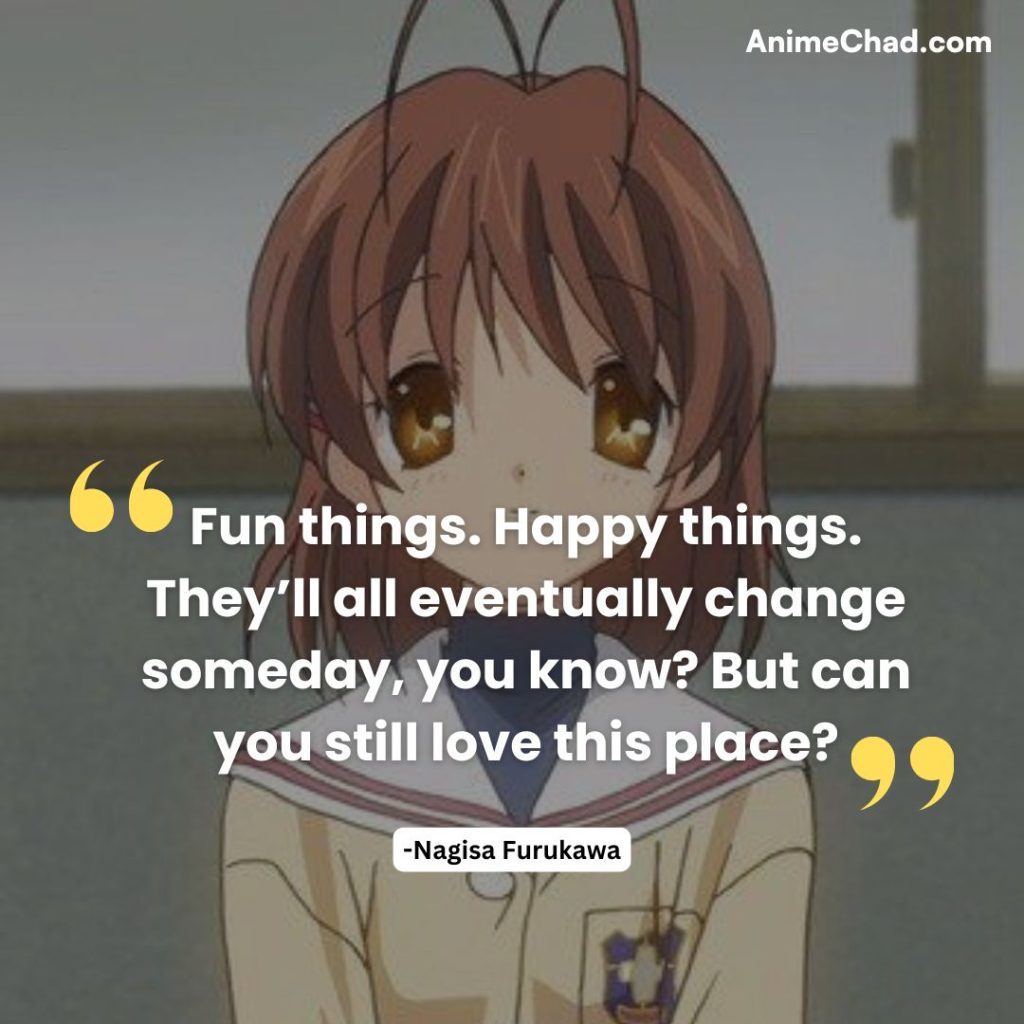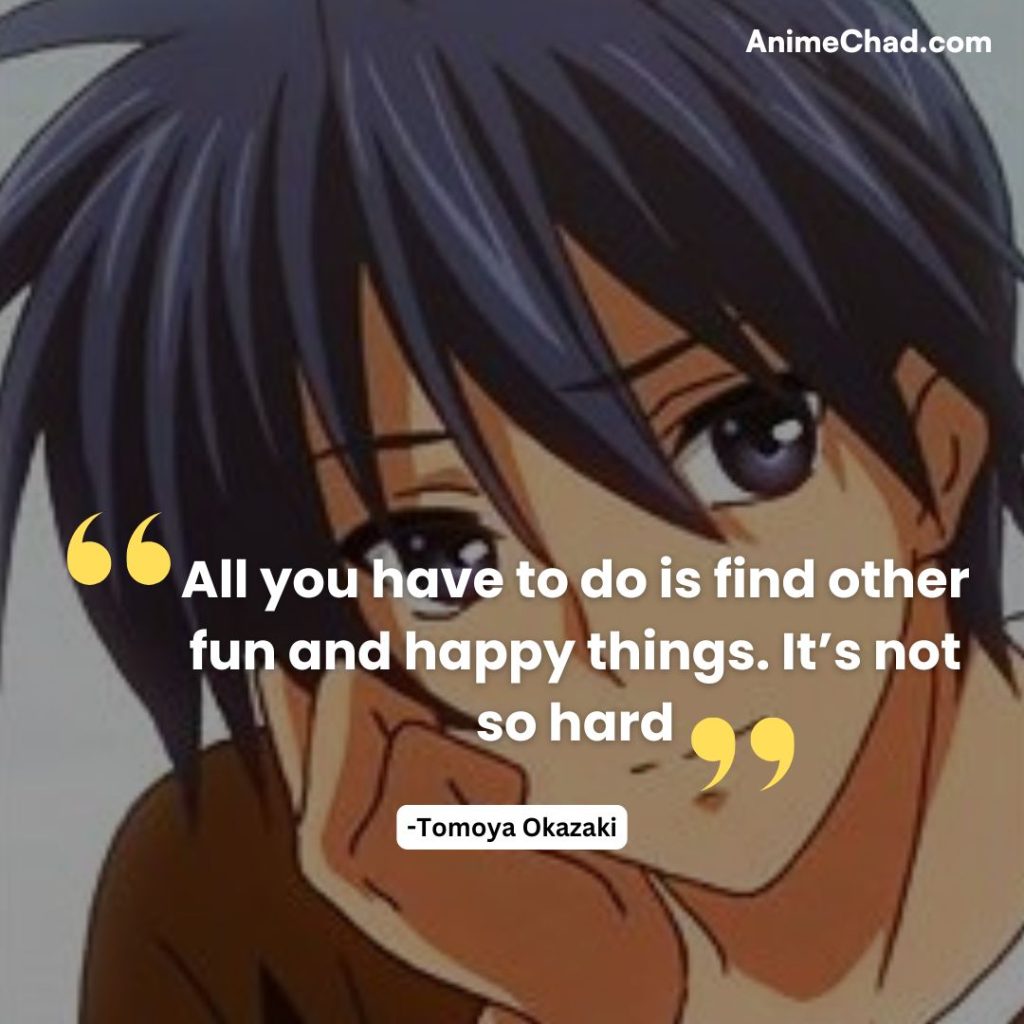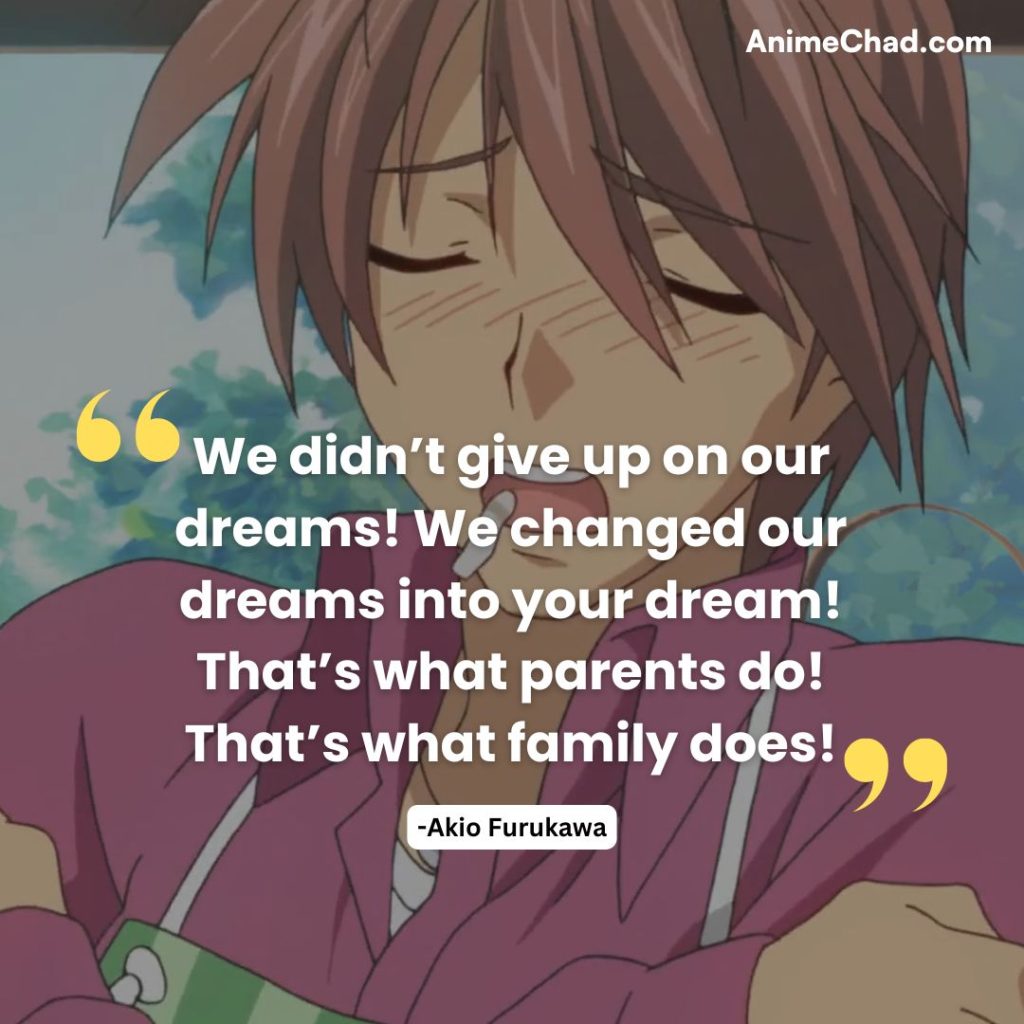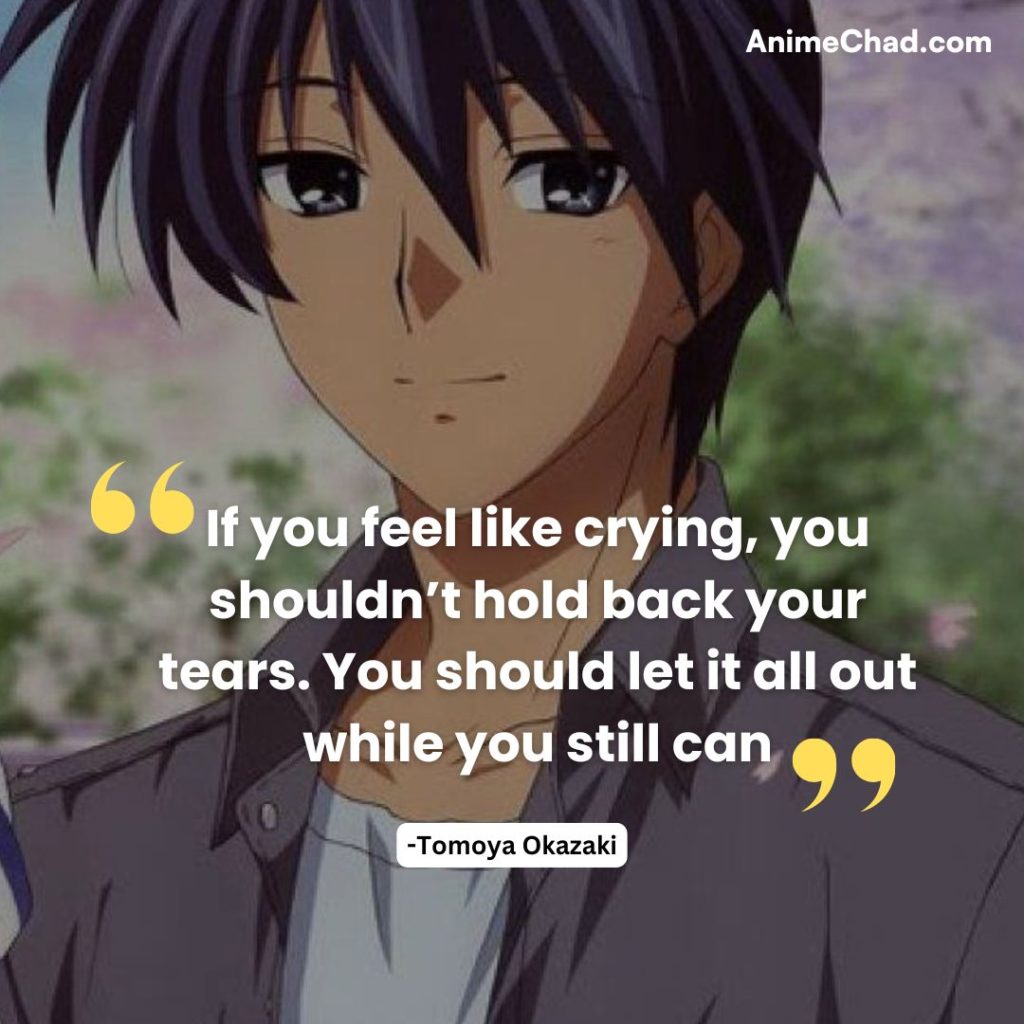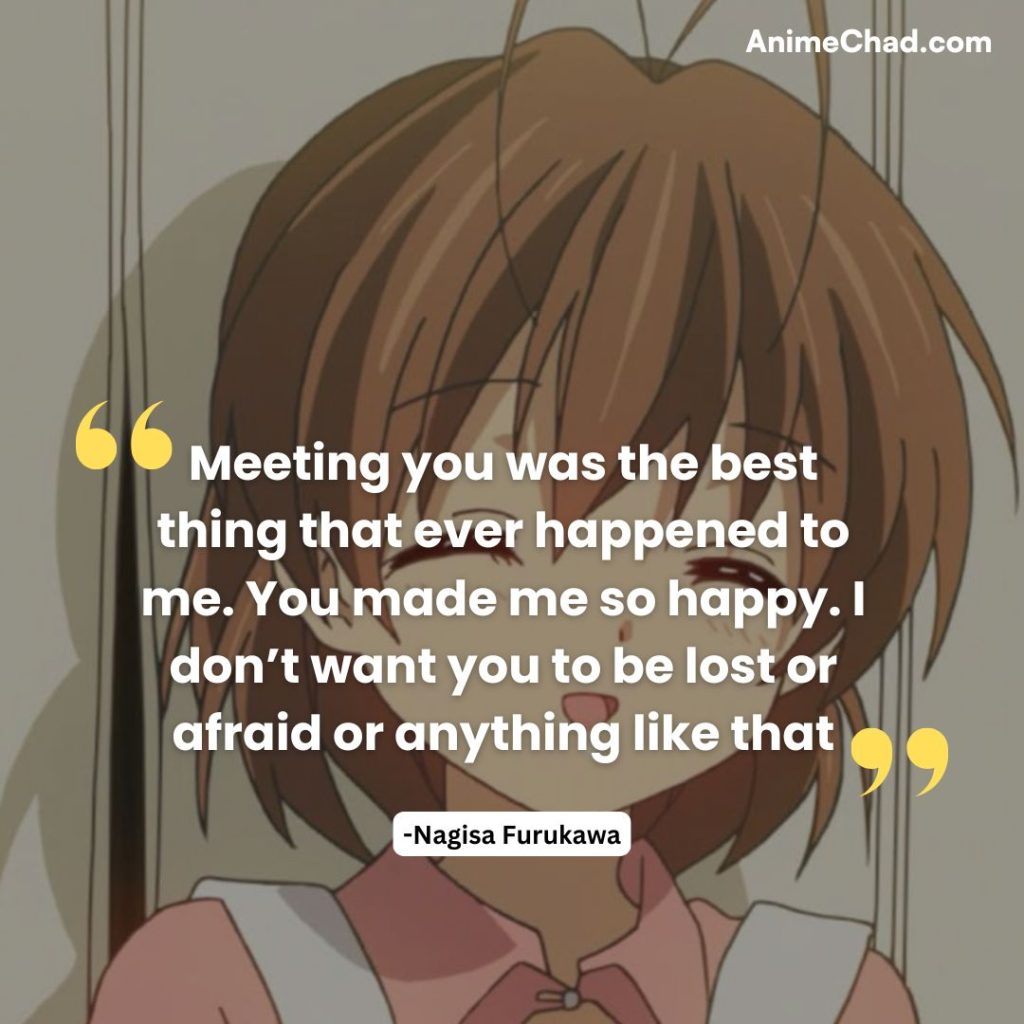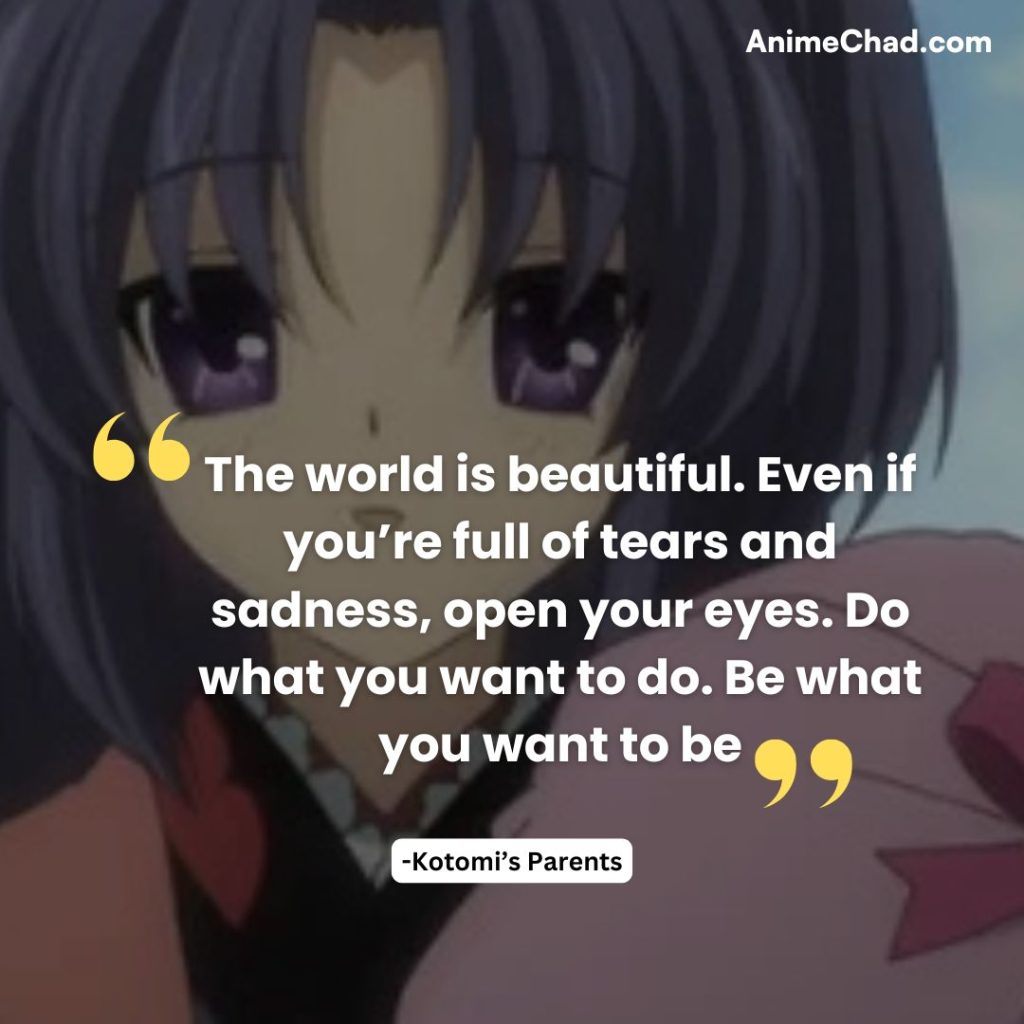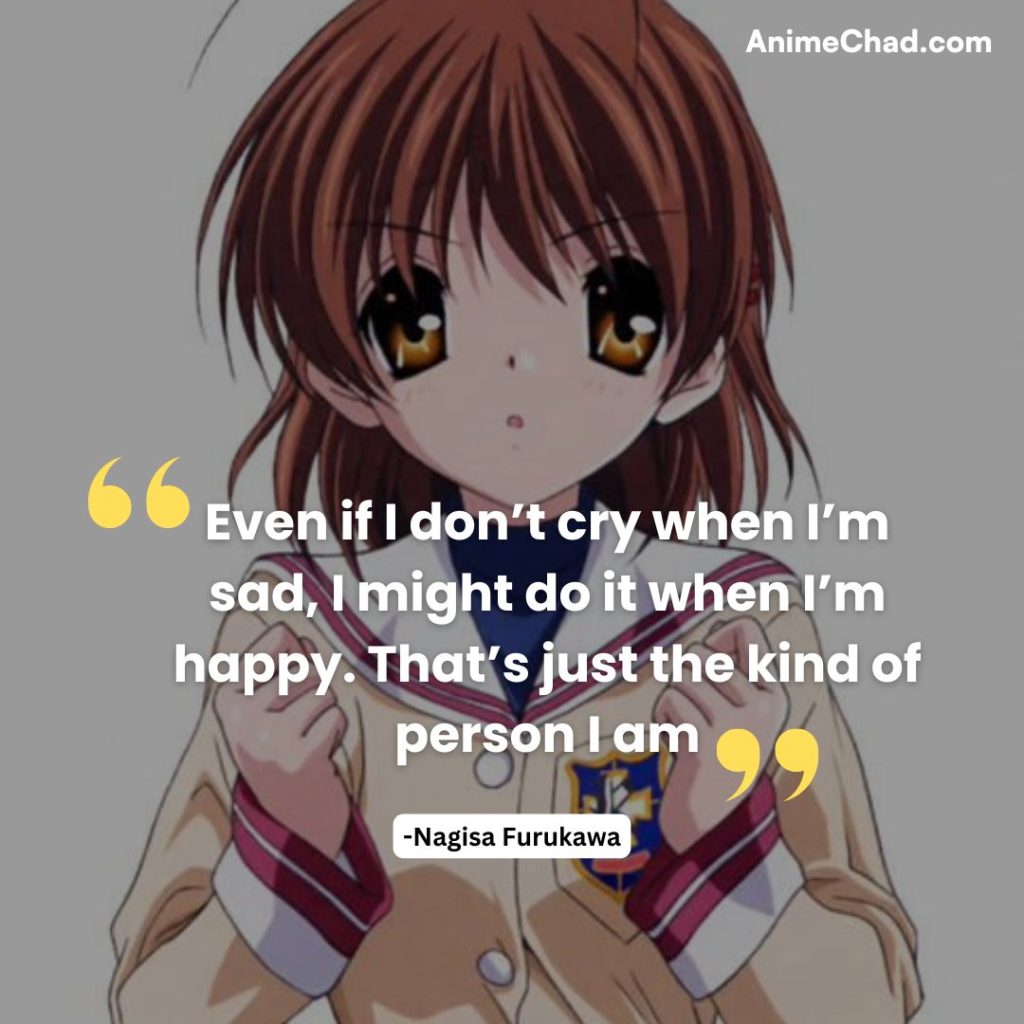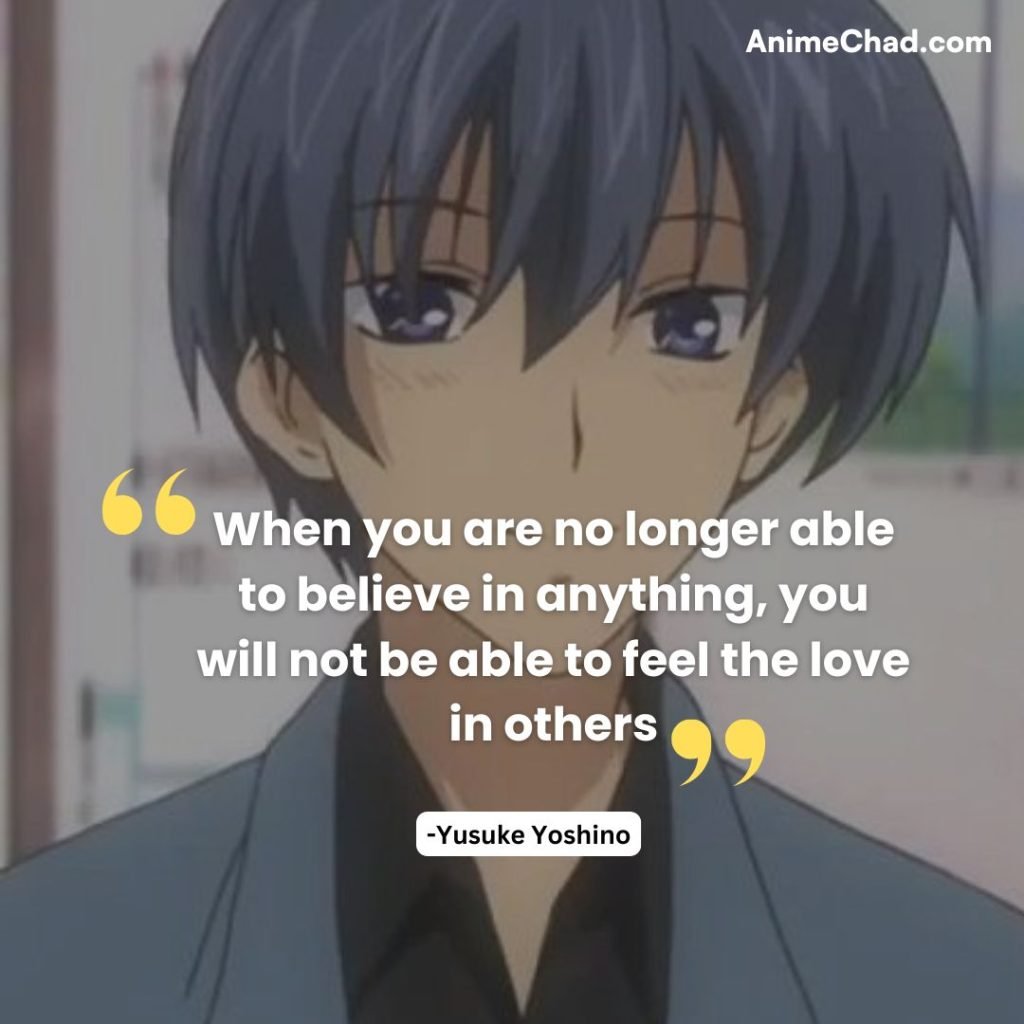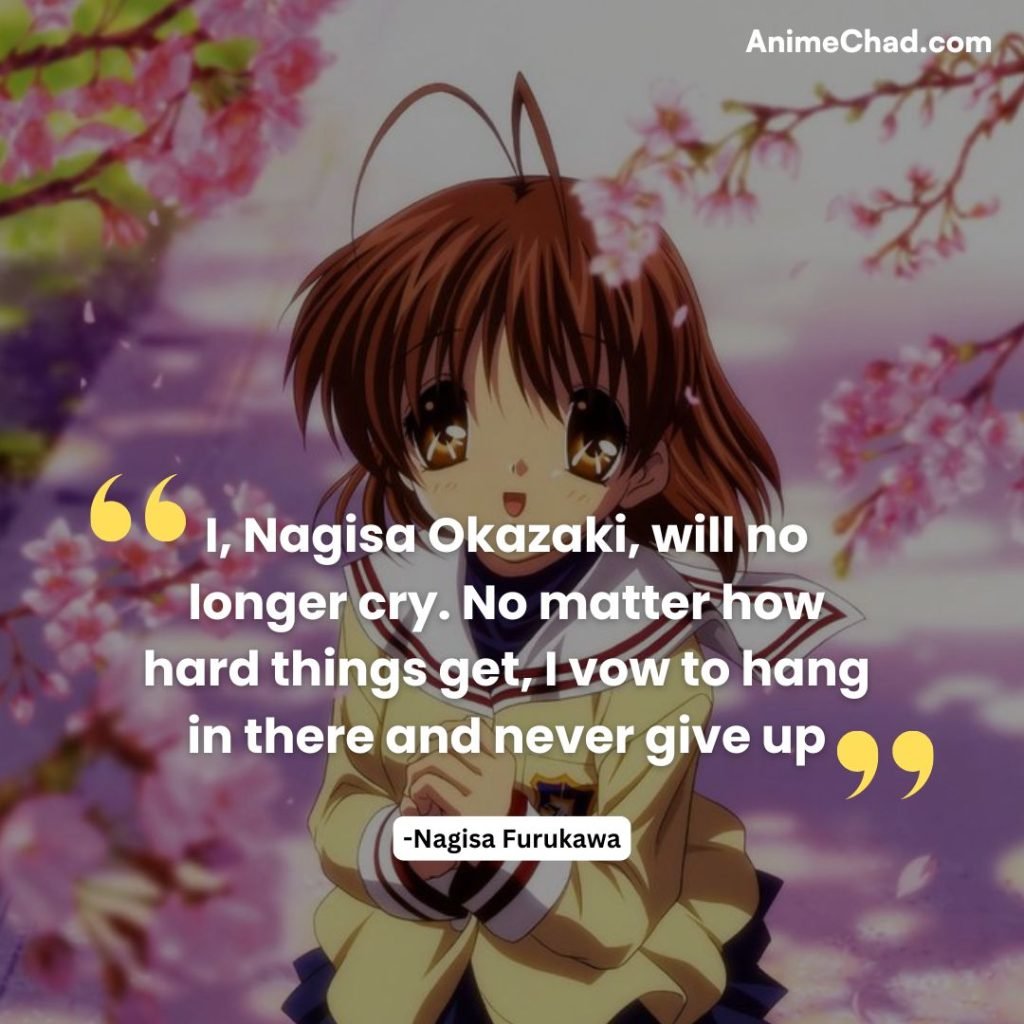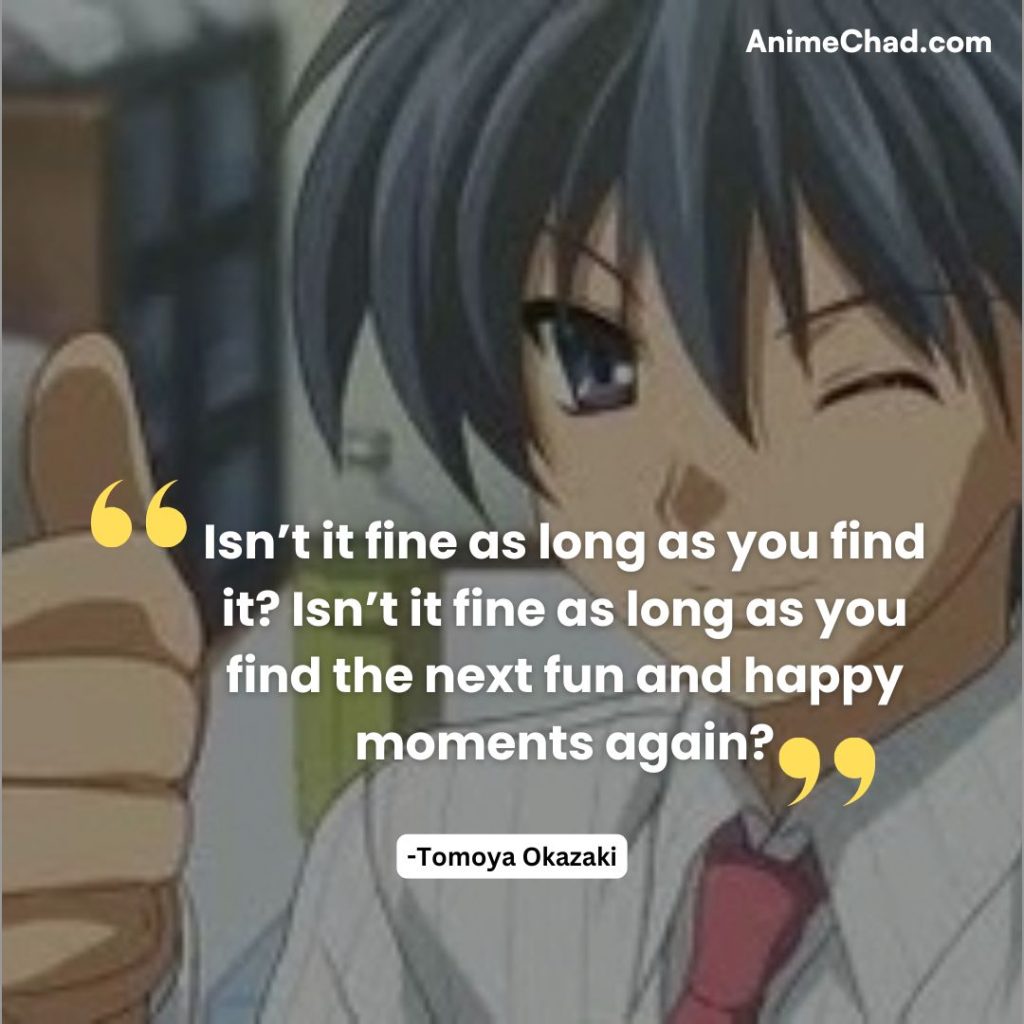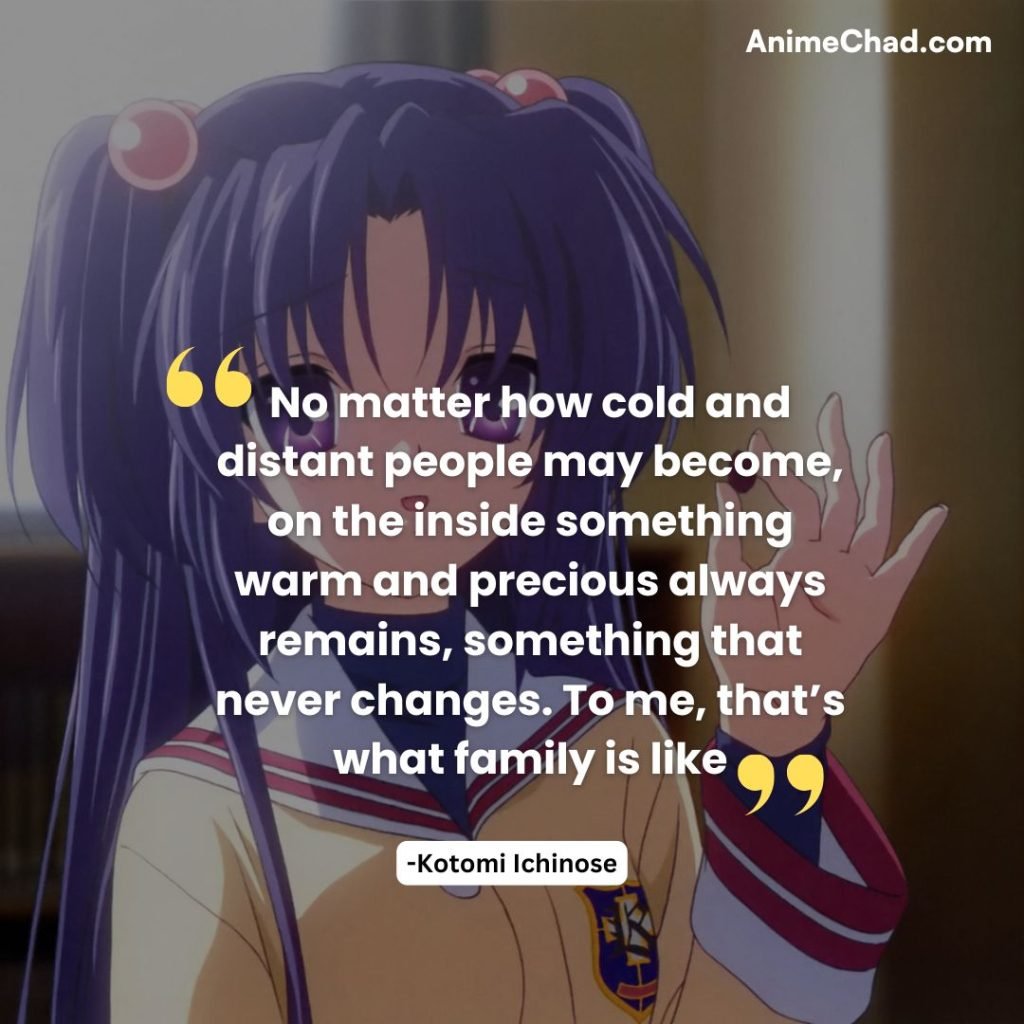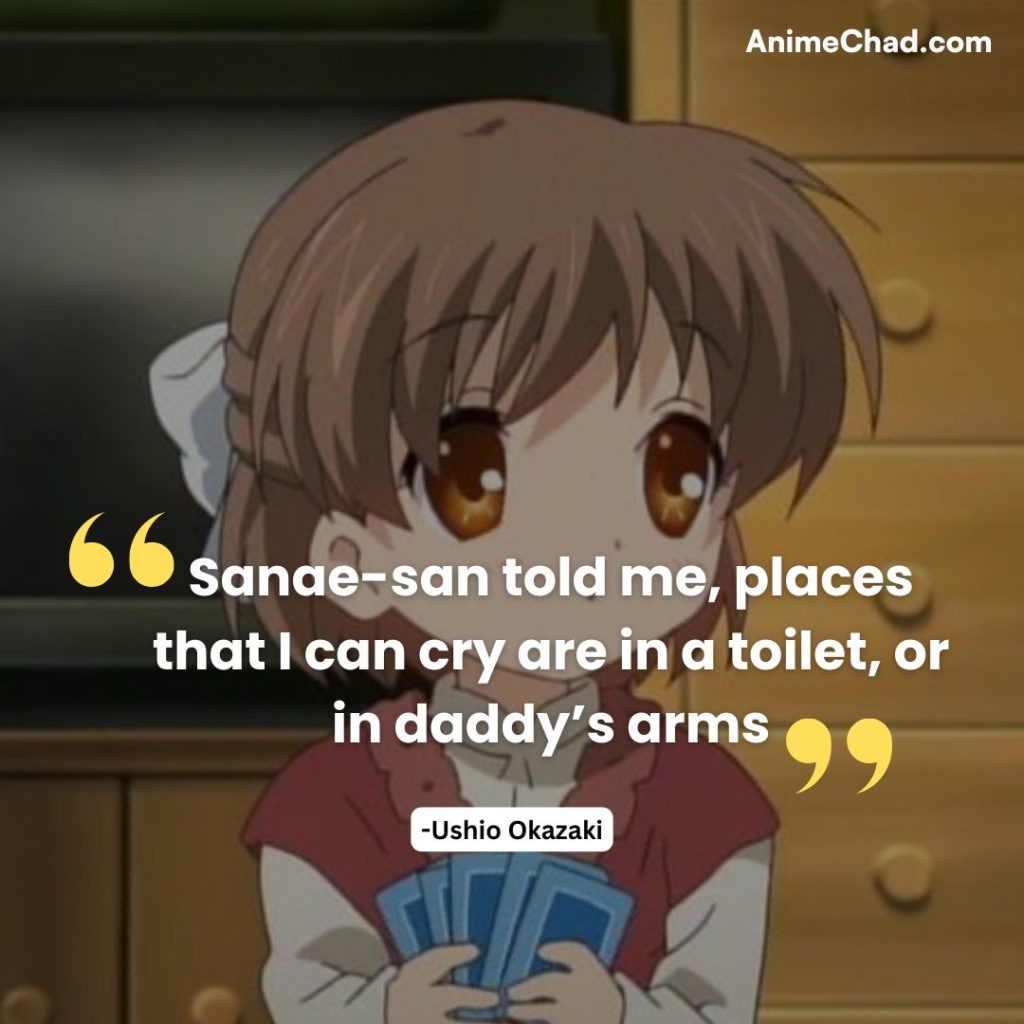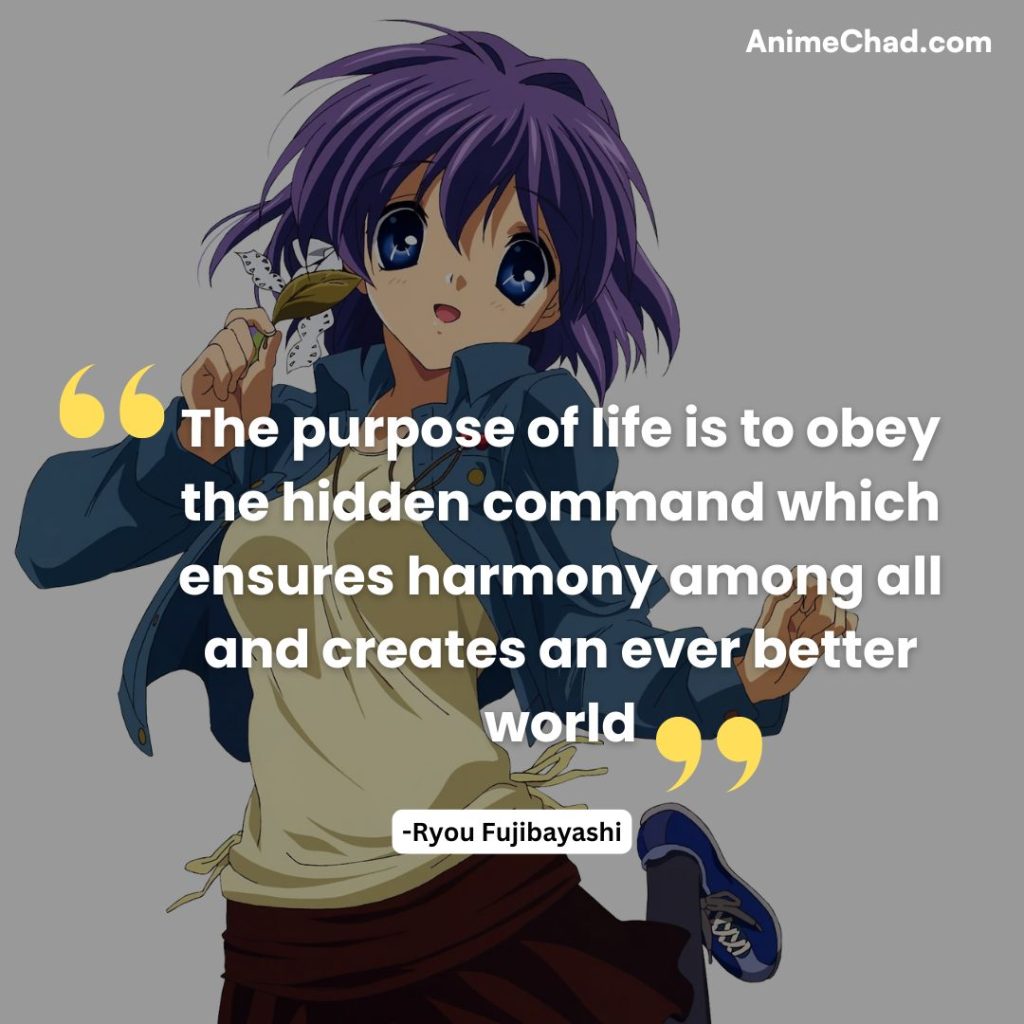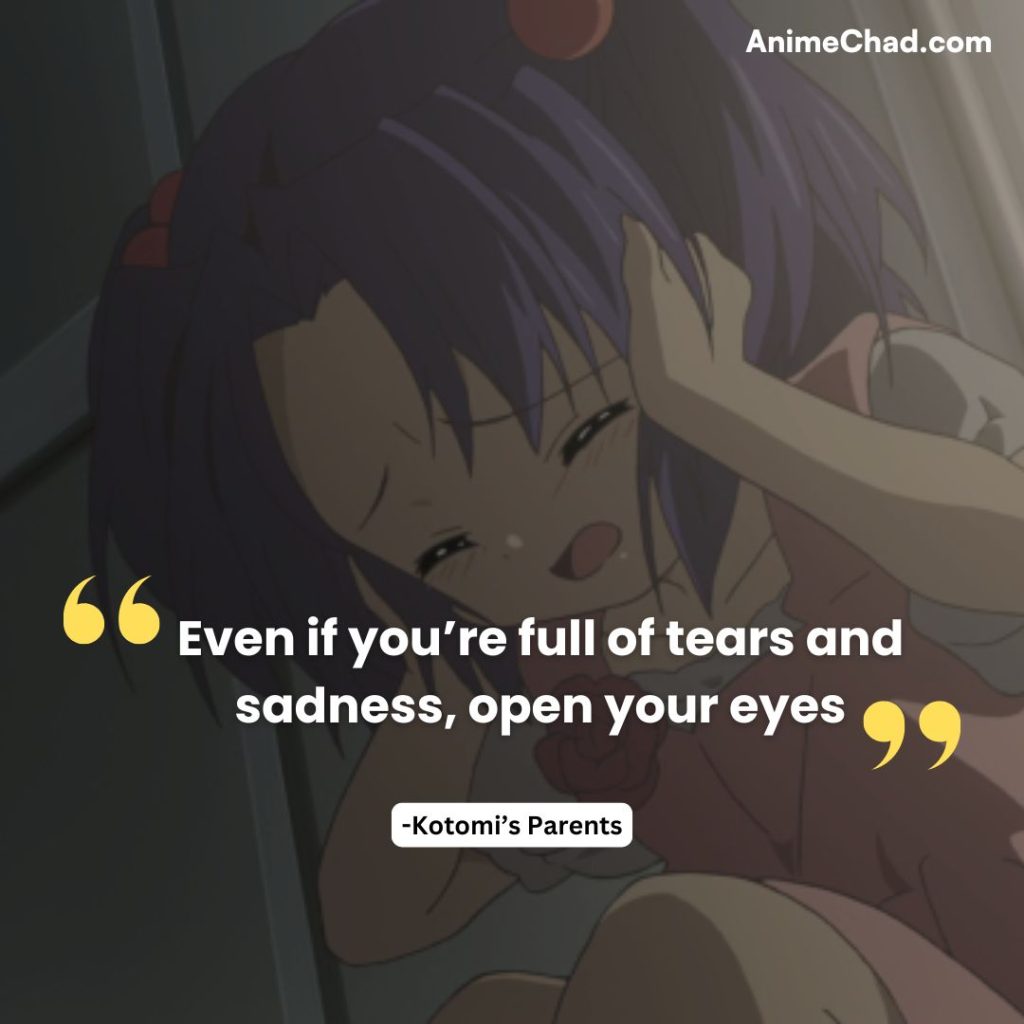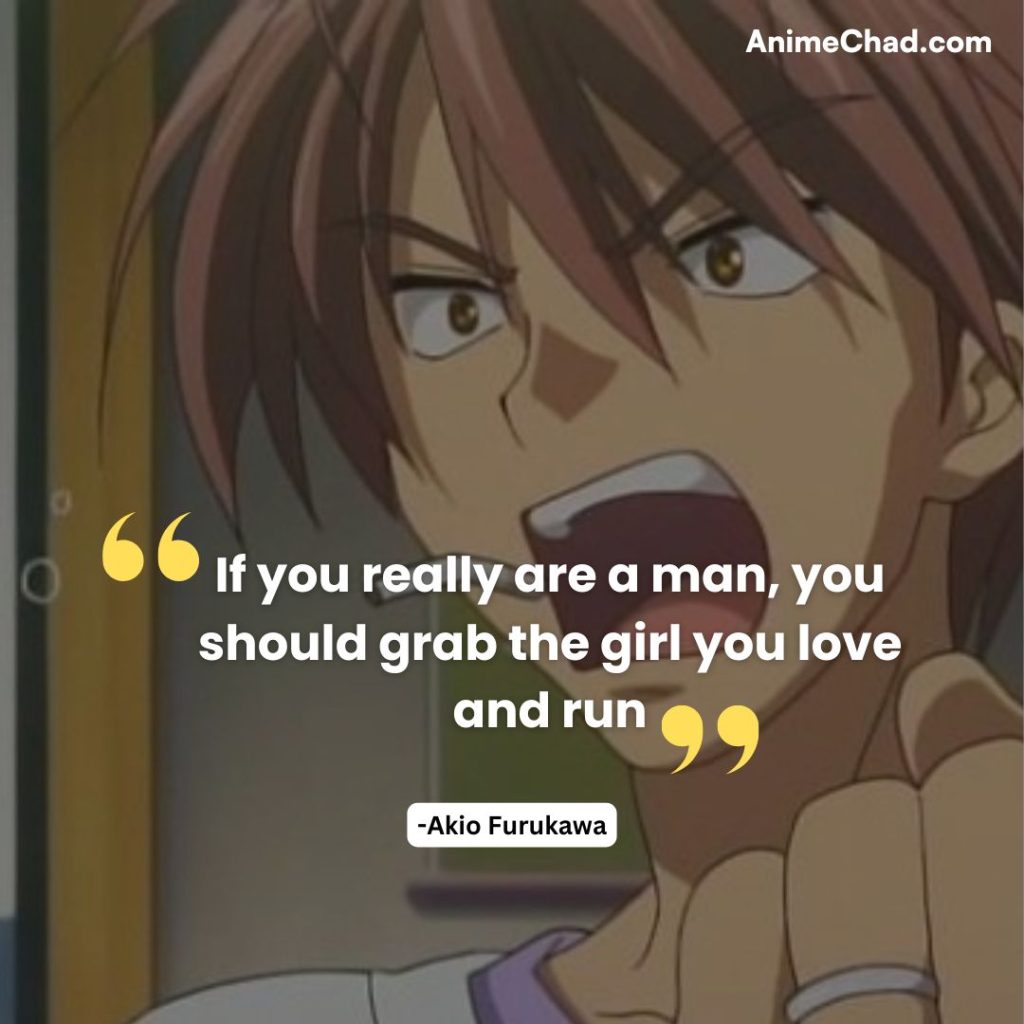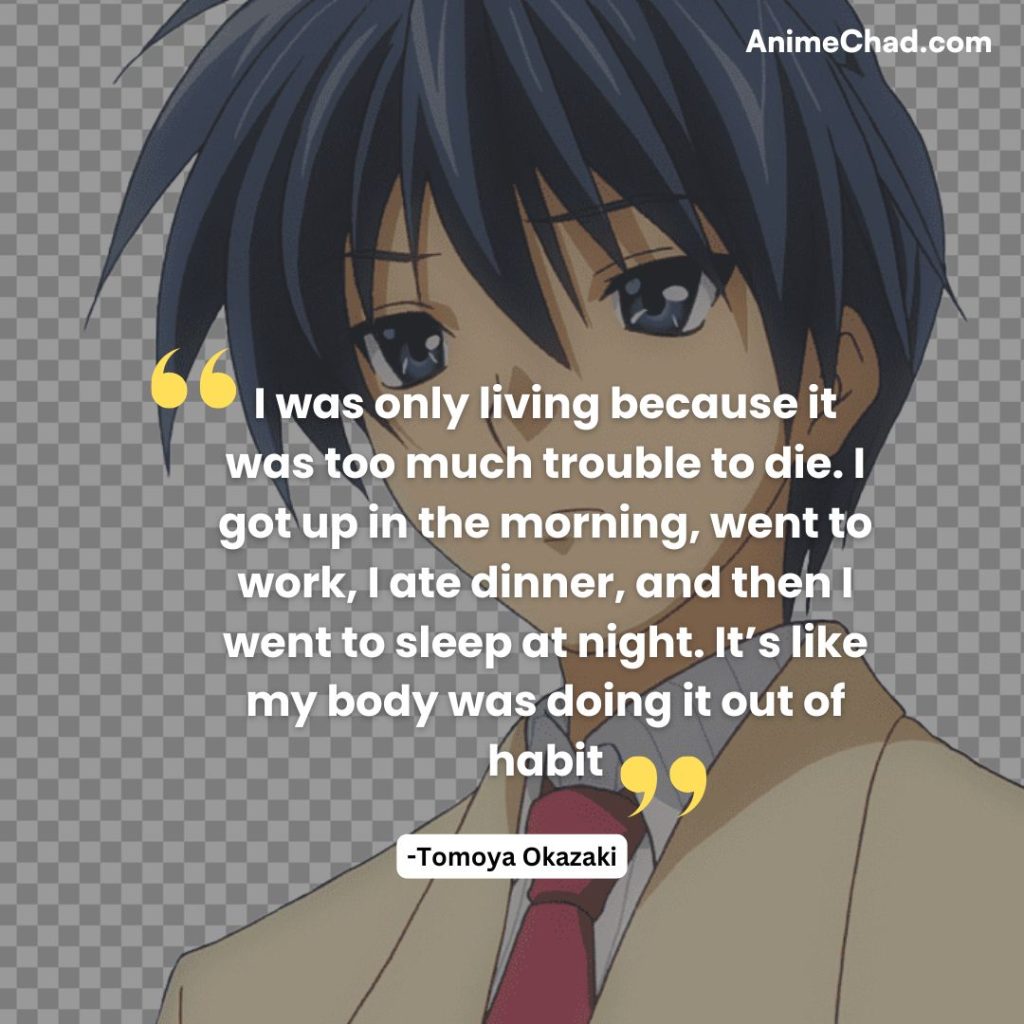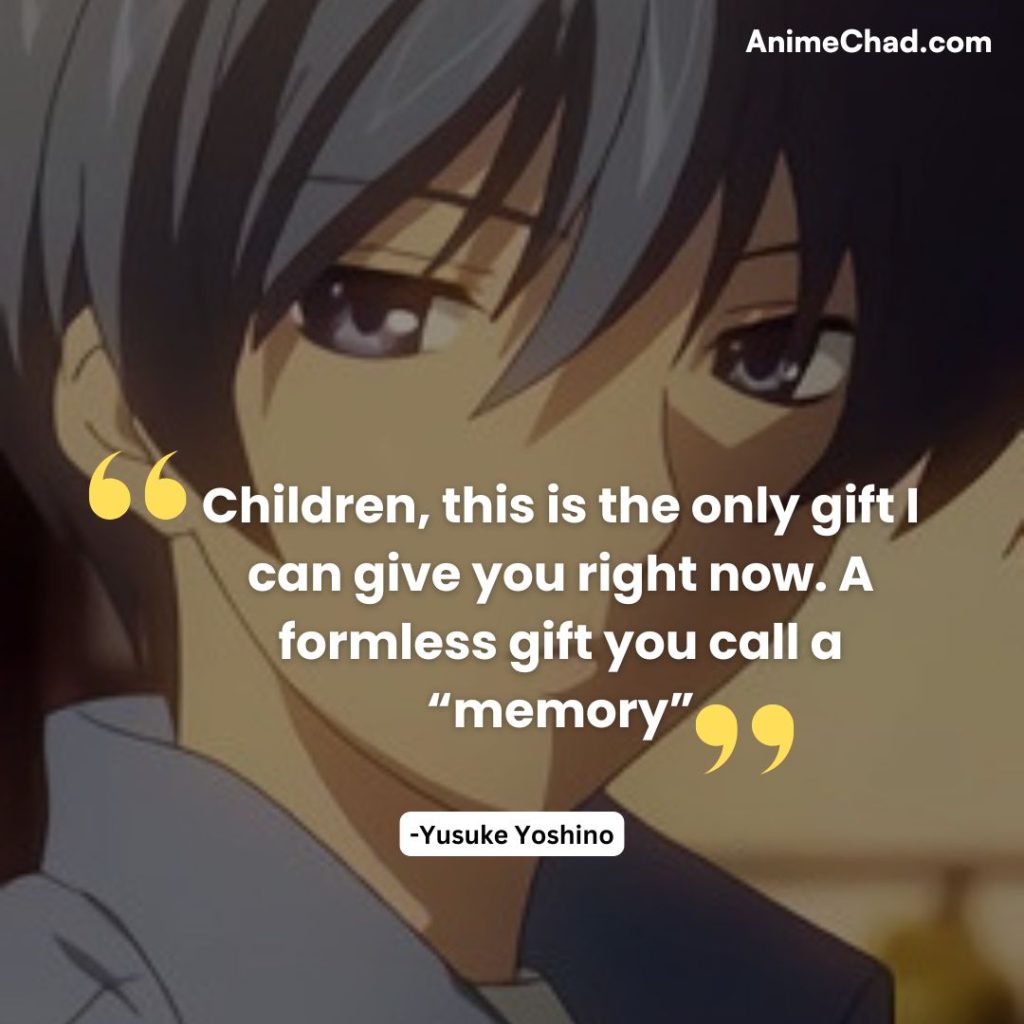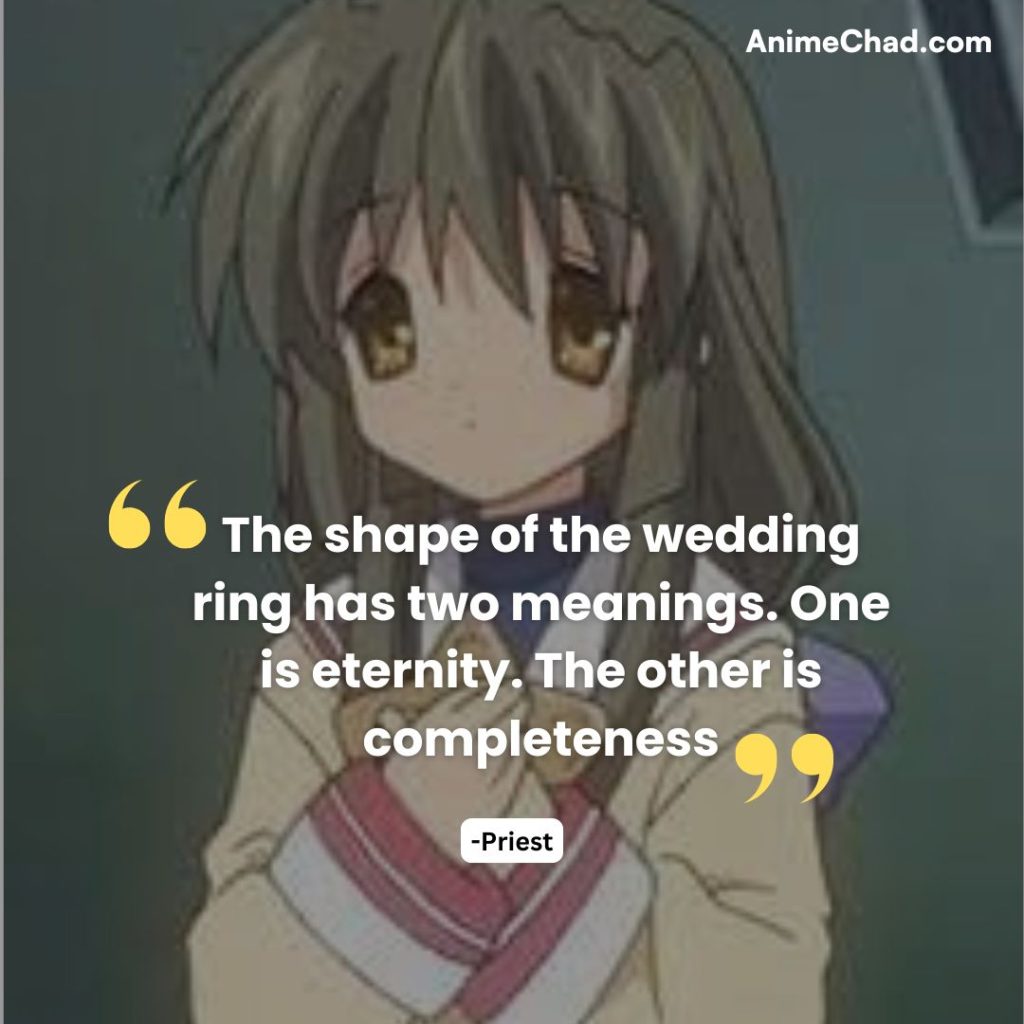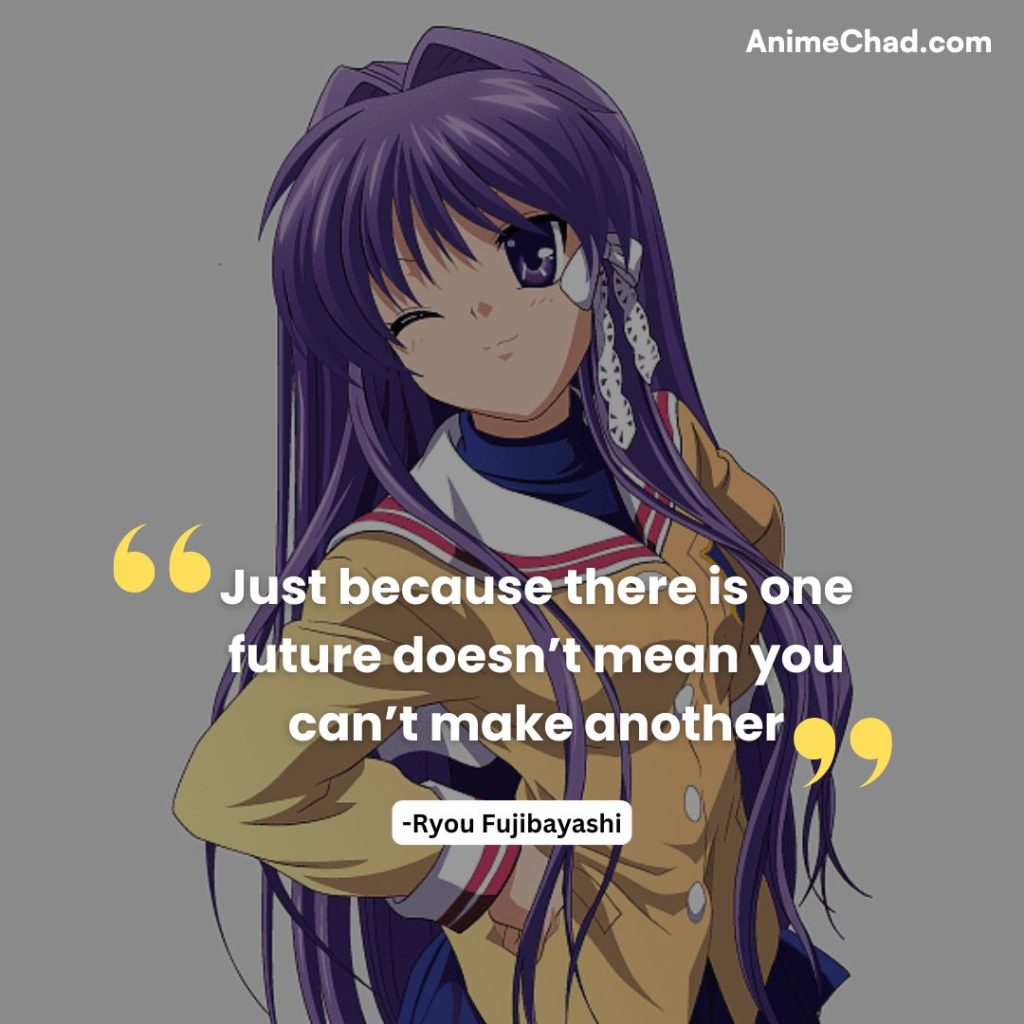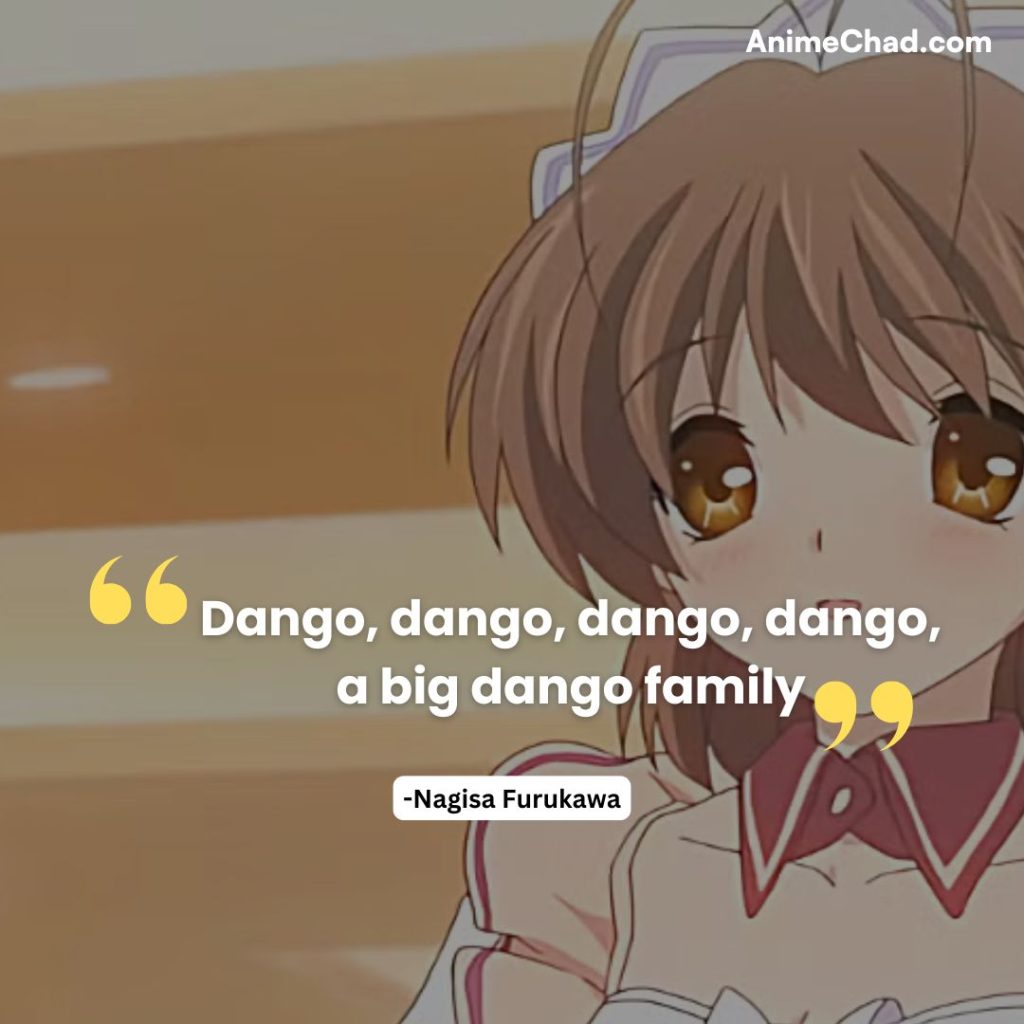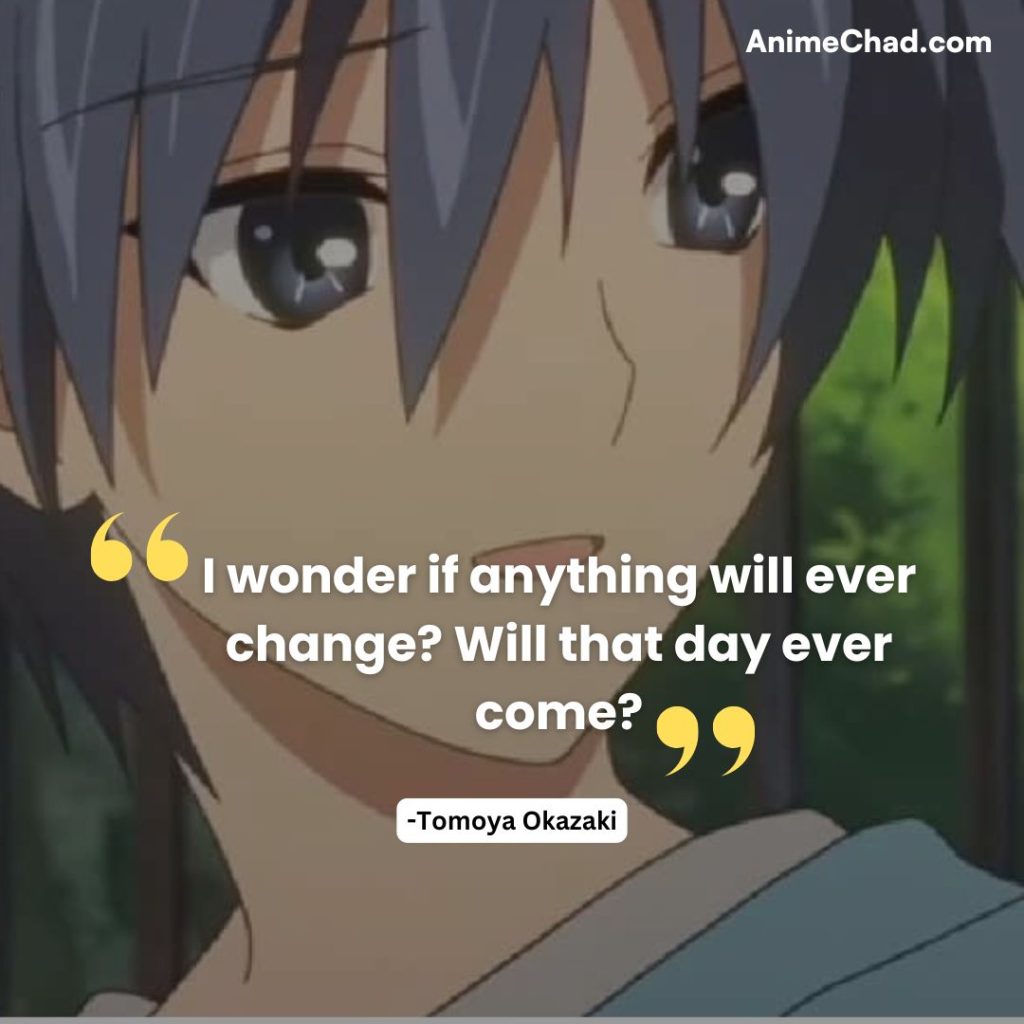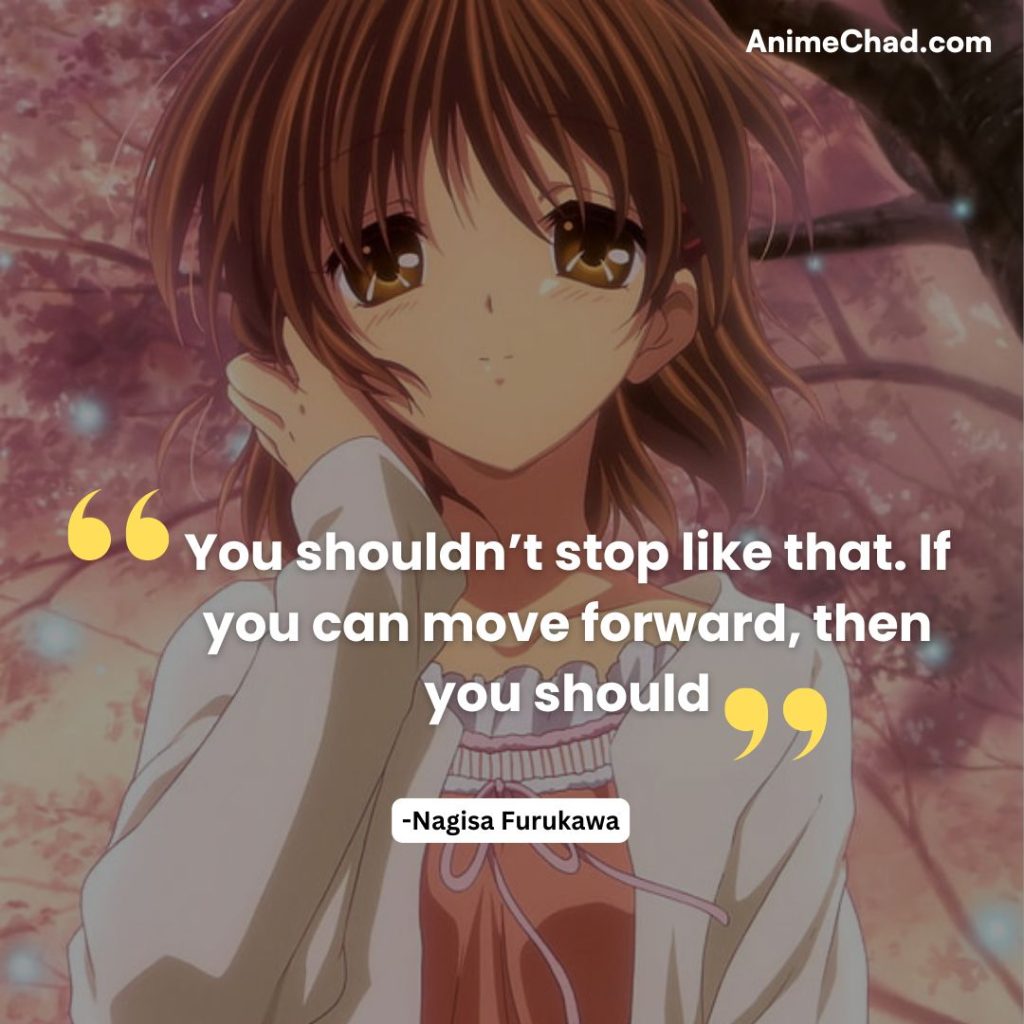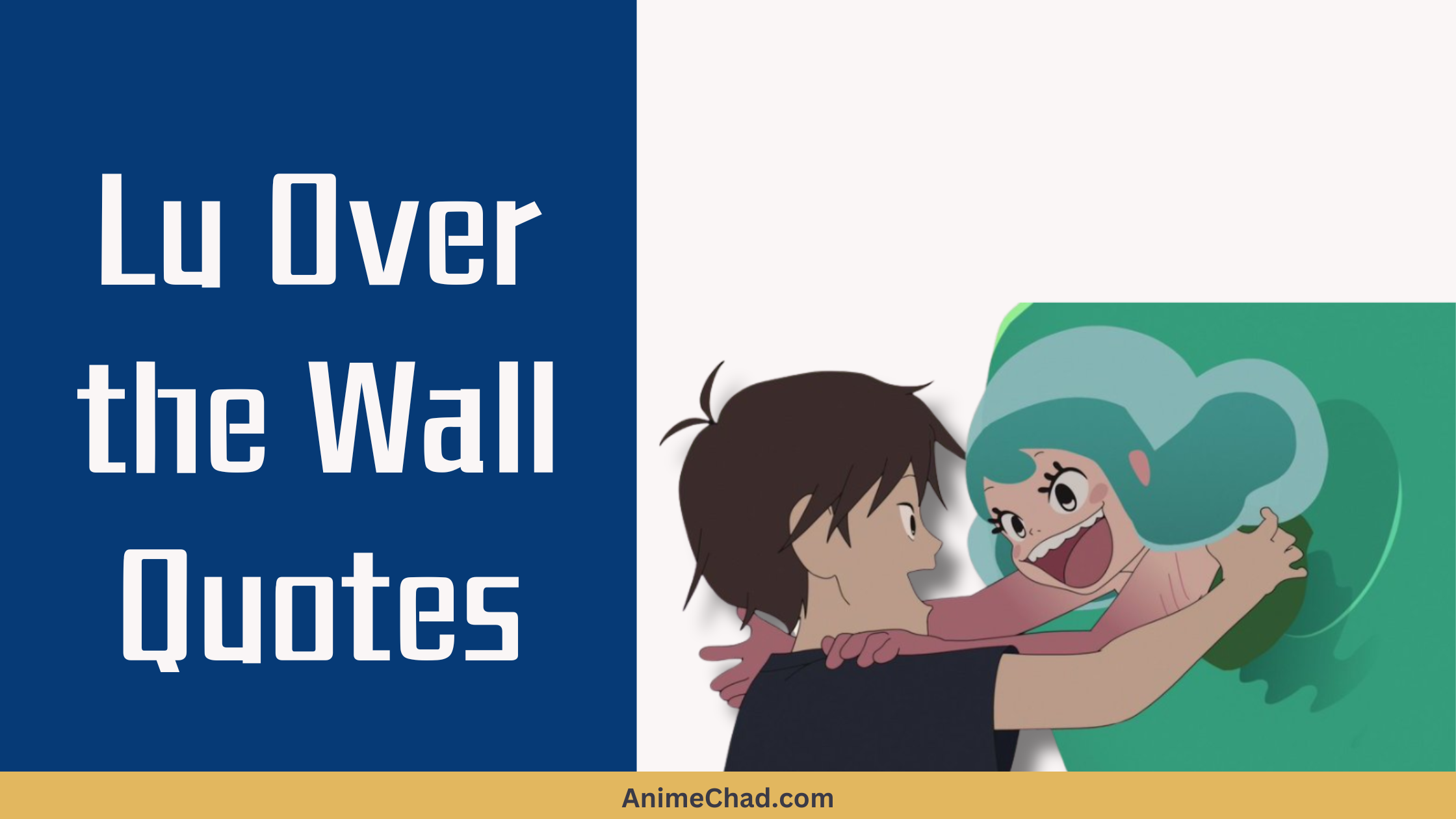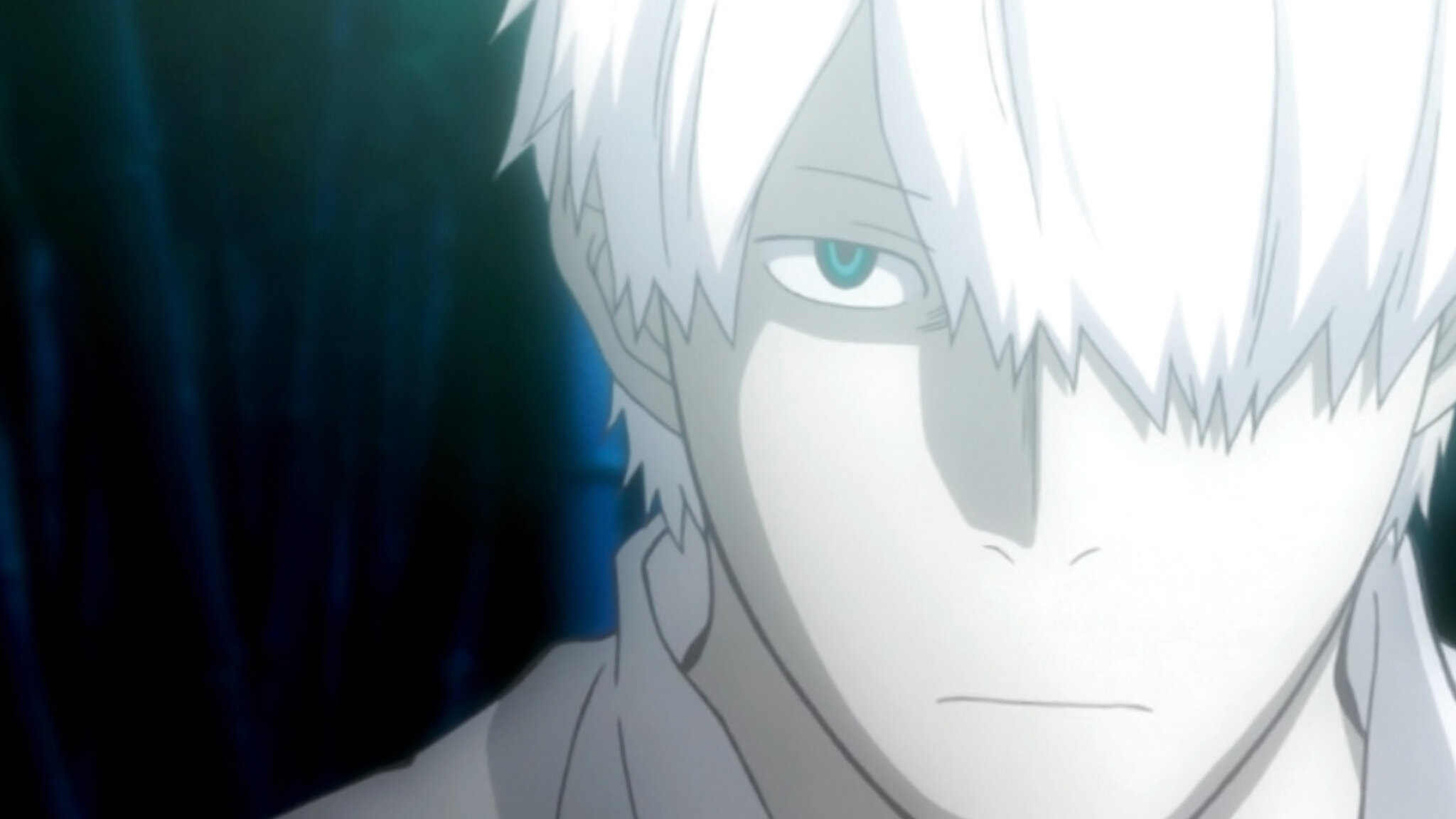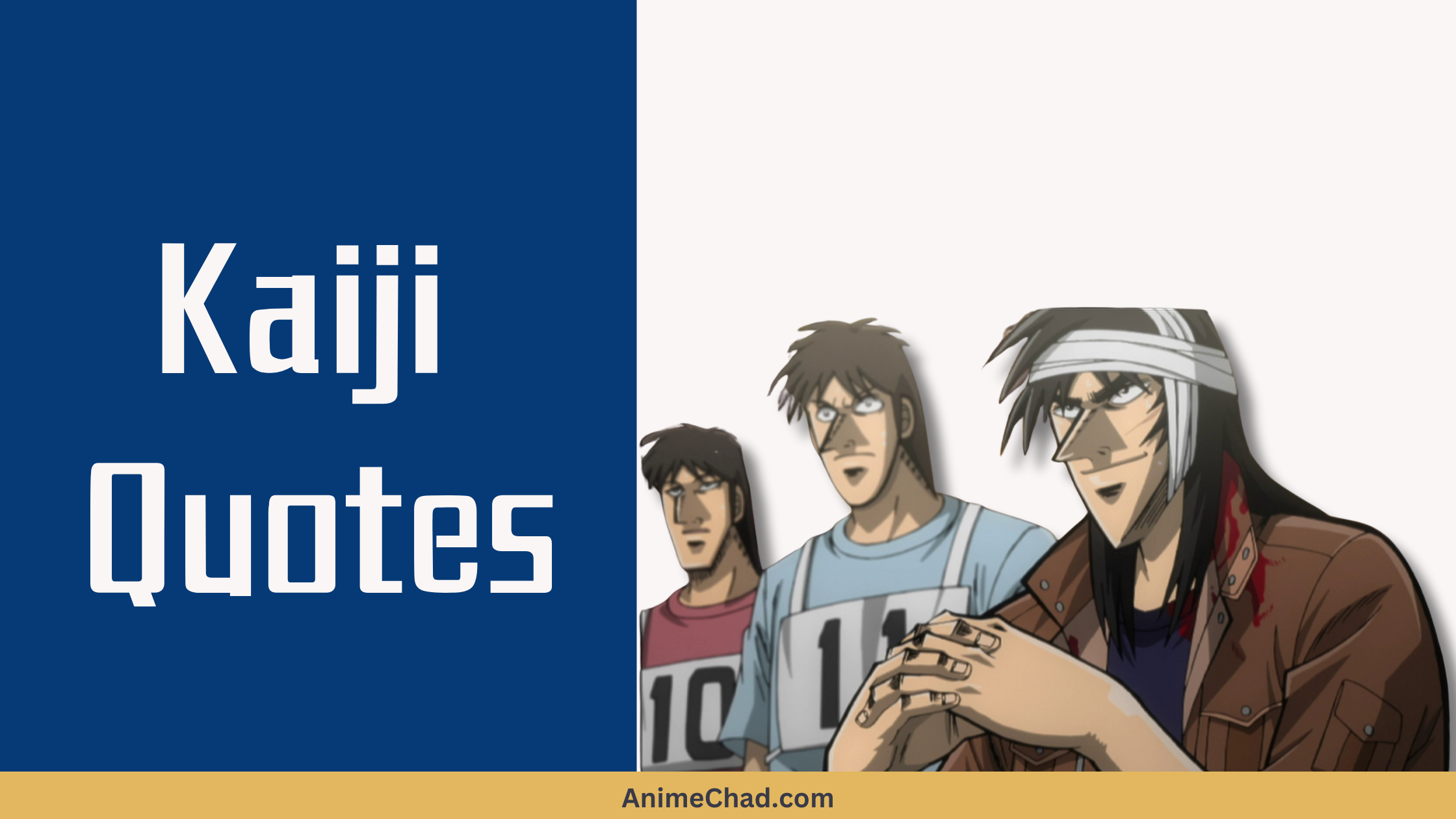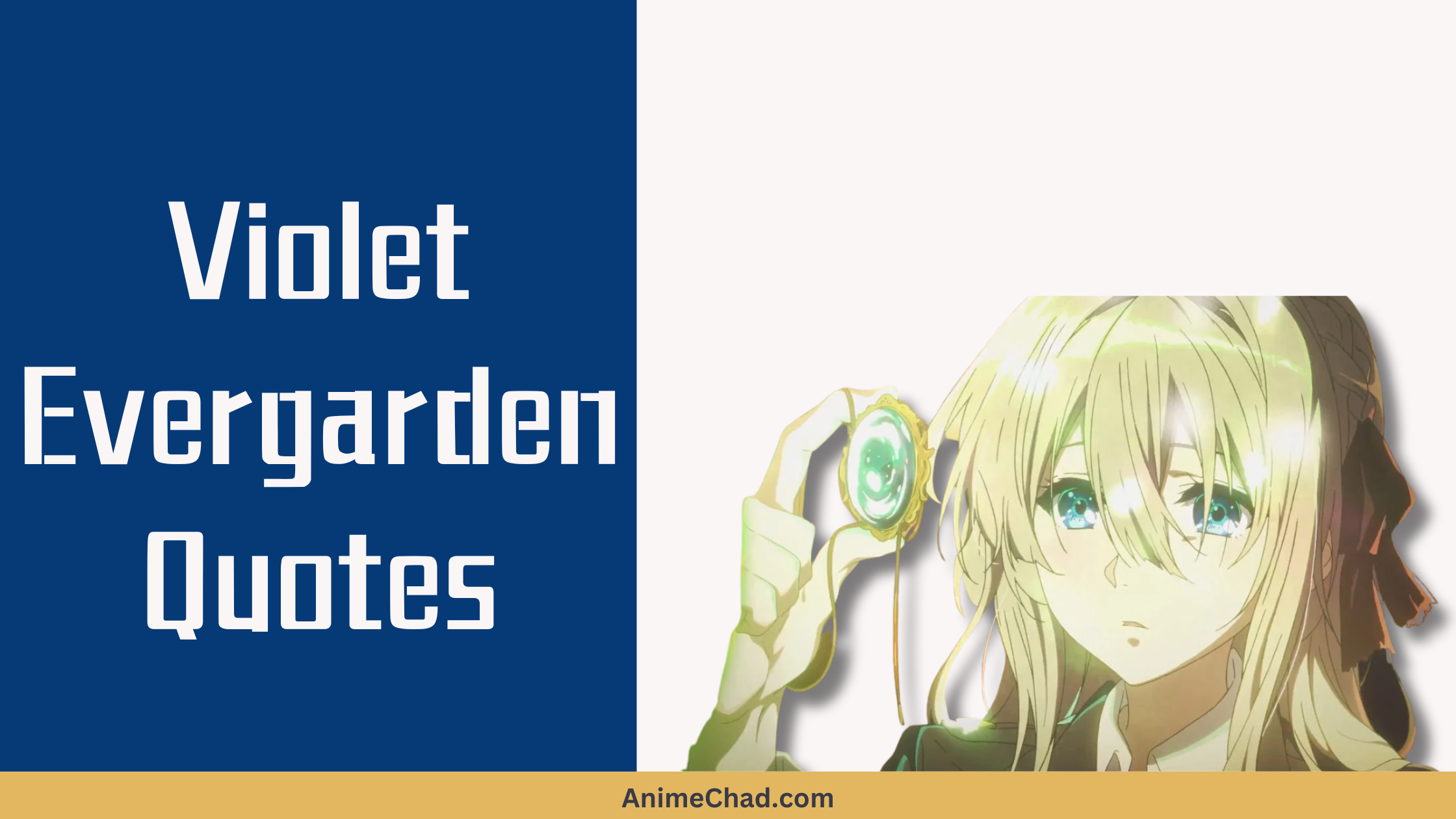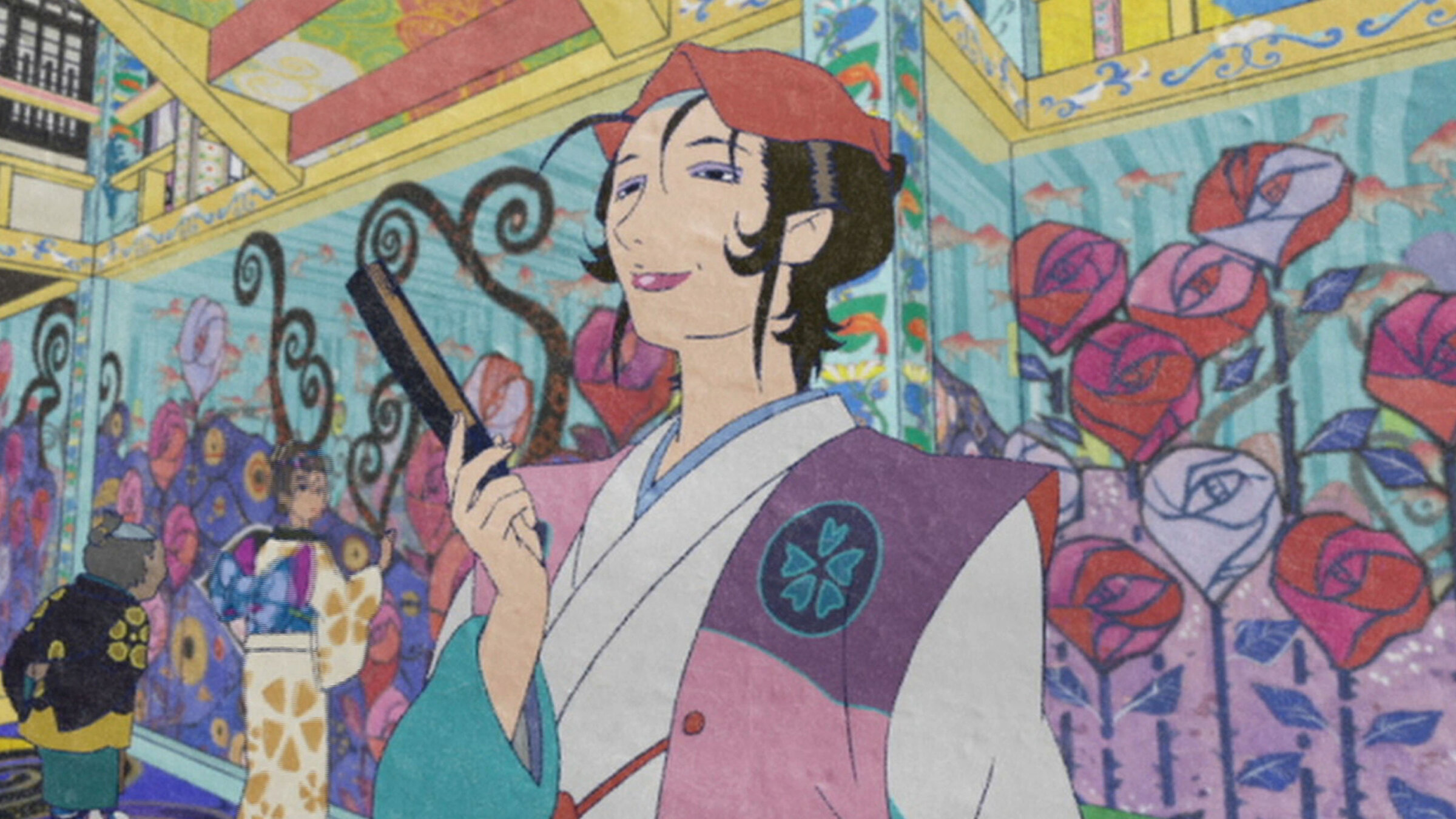Clannad follows Tomoya Okazaki, a troubled high schooler whose life changes as he forms deep bonds with Nagisa Furukawa and a cast of unique friends.
The series explores themes of family, forgiveness, perseverance, and the search for happiness through hardship and change.
This collection highlights the most moving quotes from Clannad and Clannad: After Story, capturing the emotional growth, wisdom, and enduring hope at the heart of the series.
I hate this town. It’s too filled with memories I’d rather forget. I wonder if anything will ever change? Will that day ever come?
(Episode 1: On the Hillside Path Where the Cherry Blossoms Flutter)
Tomoya Okazaki
Tomoya’s opening monologue sets the tone of longing and disconnection that drives his journey.
The day before yesterday, I saw a rabbit. Yesterday, it was a deer. And today, it’s you
(Episode 9: Until the End of the Dream)
Kotomi Ichinose
Kotomi’s gentle words symbolize the beauty of unexpected encounters and new beginnings.
Fun things. Happy things. They’ll all eventually change someday, you know? But can you still love this place?
(Episode 1: On the Hillside Path Where the Cherry Blossoms Flutter)
Nagisa Furukawa
Nagisa’s question challenges Tomoya to find hope and meaning despite inevitable change.
All you have to do is find other fun and happy things. It’s not so hard
(Episode 1: On the Hillside Path Where the Cherry Blossoms Flutter)
Tomoya Okazaki
Tomoya encourages Nagisa to keep searching for happiness, reflecting his own gradual optimism.
We didn’t give up on our dreams! We changed our dreams into your dream! That’s what parents do! That’s what family does!
(Episode 18: The Ends of the Earth)
Akio Furukawa
Akio’s passionate words define the selfless love and sacrifice at the core of true family.
If you feel like crying, you shouldn’t hold back your tears. You should let it all out while you still can
(Episode 18: The Ends of the Earth)
Tomoya Okazaki
Tomoya shares the importance of expressing emotion, a lesson he learns through hardship.
Meeting you was the best thing that ever happened to me. You made me so happy. I don’t want you to be lost or afraid or anything like that
(Episode 16: White Darkness)
Nagisa Furukawa
Nagisa’s heartfelt confession marks a turning point in her relationship with Tomoya.
The world is beautiful. Even if you’re full of tears and sadness, open your eyes. Do what you want to do. Be what you want to be
(Episode 8: A Distant Town)
Kotomi’s Parents
A message of hope and encouragement, urging Kotomi—and viewers—to embrace life despite pain.
Even if I don’t cry when I’m sad, I might do it when I’m happy. That’s just the kind of person I am
(Episode 9: Until the End of the Dream)
Nagisa Furukawa
Nagisa’s self-awareness highlights the complexity of emotions and her gentle resilience.
Time and titles do not matter in the bonds between people
(Episode 14: Theory of Everything)
Tomoyo Sakagami
Tomoyo’s insight speaks to the timeless, unconditional nature of true relationships.
When you are no longer able to believe in anything, you will not be able to feel the love in others
(Episode 17: Goodbye Seven Years of Pain)
Yusuke Yoshino
Yusuke’s wisdom addresses trust, healing, and the necessity of vulnerability.
I, Nagisa Okazaki, will no longer cry. No matter how hard things get, I vow to hang in there and never give up
(Episode 23: The Events of Summer Vacation)
Nagisa Furukawa
Nagisa’s vow marks her growth from fragility to quiet strength.
Isn’t it fine as long as you find it? Isn’t it fine as long as you find the next fun and happy moments again?
(Episode 1: On the Hillside Path Where the Cherry Blossoms Flutter)
Tomoya Okazaki
Tomoya’s encouragement to Nagisa reflects his own journey toward hope.
No matter how cold and distant people may become, on the inside something warm and precious always remains, something that never changes. To me, that’s what family is like
(Episode 22: Small Palms)
Kotomi Ichinose
Kotomi’s reflection on family emphasizes the enduring bonds beneath surface changes.
Sanae-san told me, places that I can cry are in a toilet, or in daddy’s arms
(Episode 18: The Ends of the Earth)
Ushio Okazaki
Ushio’s innocent words reveal the comfort and safety she finds in her father.
The purpose of life is to obey the hidden command which ensures harmony among all and creates an ever better world
(Episode 14: Theory of Everything)
Ryou Fujibayashi
Ryou’s philosophical musing connects individual actions to a greater good.
Even if you’re full of tears and sadness, open your eyes
(Episode 8: A Distant Town)
Kotomi’s Parents
A gentle reminder to persevere and seek light in dark times.
If you really are a man, you should grab the girl you love and run
(Episode 22: Small Palms)
Akio Furukawa
Akio’s advice to Tomoya is both humorous and sincere, urging him to fight for love.
I was only living because it was too much trouble to die. I got up in the morning, went to work, I ate dinner, and then I went to sleep at night. It’s like my body was doing it out of habit
(Episode 17: Goodbye Seven Years of Pain)
Tomoya Okazaki
Tomoya’s confession shows the numbness and emptiness he battles before finding purpose.
Children, this is the only gift I can give you right now. A formless gift you call a “memory”
(Episode 14: Theory of Everything)
Yusuke Yoshino
Yusuke’s words highlight the lasting power of memories over material possessions.
The shape of the wedding ring has two meanings. One is eternity. The other is completeness
(Episode 18: The Ends of the Earth)
Priest
A symbolic explanation during Tomoya and Nagisa’s wedding, connecting love to lasting fulfillment.
Just because there is one future doesn’t mean you can’t make another
(Episode 22: Small Palms)
Ryou Fujibayashi
Ryou’s optimism reflects the series’ message of hope and self-determination.
Dango, dango, dango, dango, a big dango family
(Episode 22: Small Palms)
Nagisa Furukawa
The dango song symbolizes warmth, togetherness, and Nagisa’s dream of family.
I wonder if anything will ever change? Will that day ever come?
(Episode 1: On the Hillside Path Where the Cherry Blossoms Flutter)
Tomoya Okazaki
A recurring question that frames Tomoya’s journey from despair to hope.
You shouldn’t stop like that. If you can move forward, then you should
(Episode 2: The First Step)
Nagisa Furukawa
Nagisa’s encouragement to Tomoya reflects her belief in perseverance and growth.
These quotes capture the spirit of Clannad—its pain, hope, and the transformative power of love and family through life’s trials.

